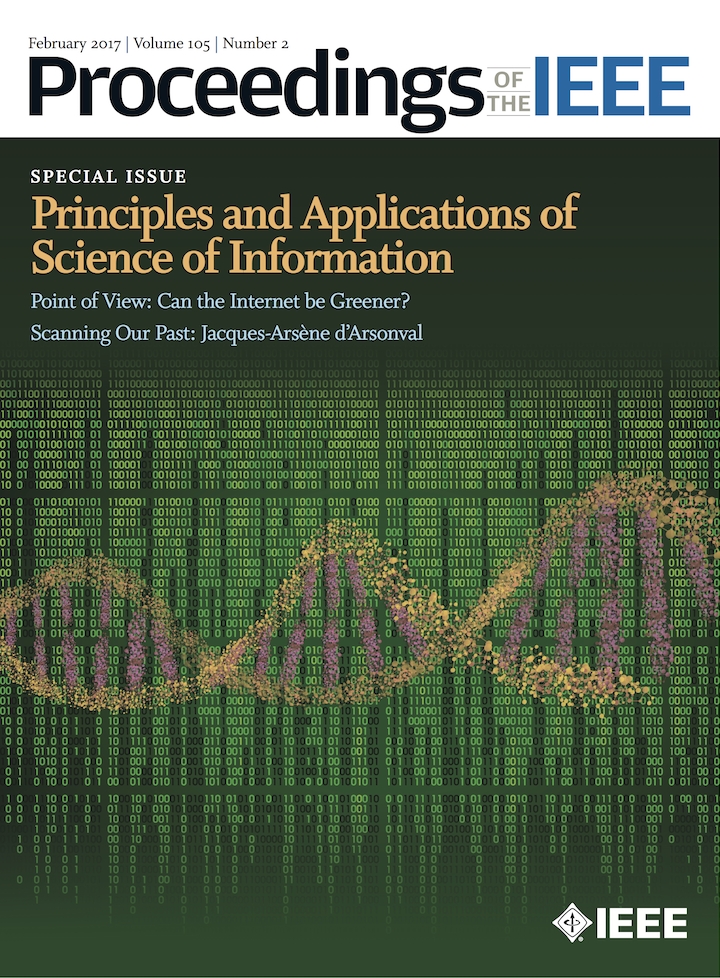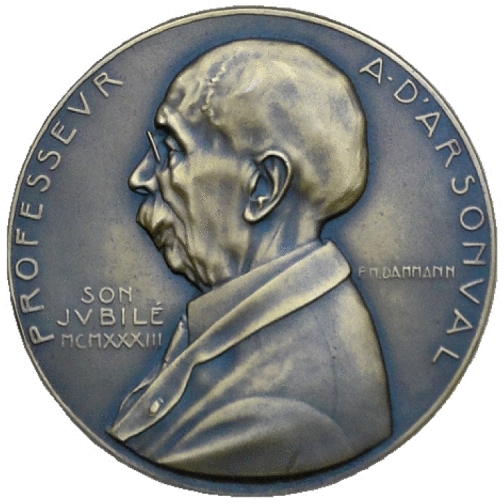2017 Journal Issues February 1, 2017


Special Issue: Principles and Applications of Science of Information
Volume 105, Issue 2
February 2017
Guest Editors




Special Issue Papers
By T. Courtade, A. Grama, M. Mahoney, and T. Weismann
By P. Delgosha, A. Gohari, and M. Akbarpour
This paper fuses ideas from both information theory and game theory to study repeated games with incomplete information in a “high-probability framework.”
By E. Akyol, C. Langbort, and T. Basar
This paper studies information disclosure problems of economics through an information-theoretic lens.
By B. Satchidanandan and P. R. Kumar
This paper investigates the problem of secure control of networked cyber–physical systems.
By L. R. Varshney and K. Varshney
This paper introduces an information-based model of signal detection motivated by the question of racial discrimination in decision-making scenarios such as police arrests.
By K. Fountoulakis, D. F. Gleich, and M. W. Mahoney
This paper investigates a class of locally-biased graph algorithms for finding local or small-scale structures in large graphs.
By J. Tantiongloc, D. A. Mesa, R. Ma, S. Kim, C. H. Alzate, J. J. Camacho, V. Manian, and T. P. Coleman
This paper presents a framework for a human–computer interface, which provides a simplified method based on optimal transport theory to generate optimal feedback signals between the computer and human in high dimension.
By A. Magner, D. Kihara, and W. Szpankowski
This paper presents a channel that maps sequences from a finite alphabet to self-avoiding walks in a 2-D grid.
By O. B. Akan, H. Ramezani, T. Khan, N. A. Abbasi, and M. Kuscu
This paper considers molecular communication (MC) as a communication paradigm for nanonetwork realization.
By B. Asadi, M. R. Maurya, D. M. Tartakovsky, and S. Subramaniam
This paper presents a new method for the reconstruction of dynamic biological networks and presents two case studies.
By F. DeVilbiss and D. Ramkrishna
This paper develops the argument that information-theoretic model selection metrics should be extended to nonnested model comparison applications in systems biology.
By S. Mohammadi, N. Zuckerman, A. Goldsmith, and A. Grama
This paper focuses on in silico deconvolution of signals associated with complex tissues into their constitutive cell-type components and surveys a variety of models, methods, and assumptions underlying deconvolution techniques.
By P. Grover and P. Venkatesh
This paper explores potential advantages of high-density EEG systems for high- resolution imaging of the brain and proposes a hierarchical sensing technique.
By A. Sen, W. C. Hsieh, And R. C. Aguilar
This paper investigates the relation of abnormally expanded glutamine (Q) repeats within specific proteins and their function.
Point of View
By Sofie Lambert and Mario Pickavet

